Hiking in the Backcountry and Camping Overnight
One of the most rewarding things you can do to rejuvenate yourself is hike into the backcountry and spend the night. You’ll get to see the sunset and sunrise again the next morning. Once you arrive and set up camp you can leave your pack in your tent and explore other trails. It’s very rewarding.
The most important thing you’ll need to know is to carry no more than 25-30% of your body weight. You’ll be carrying this weight the entire time you hike along the trail. You will want this experience to be a fun one, filled with lots of happy memories. The second thing is what necessities you should bring from home to keep you comfortable, safe & dry. Listed below are a few items you should have for your trip.
It’s not on the ‘Ten Essentials’ list but it’s mandatory you let someone you know your hiking plans. Where you’re going and when you plan to return. You can also leave a note on your car’s dash with the same information. It’s always a good idea to travel in pairs as well. When at the campsite, keep a notebook to let your travel companion know where you are at all times. Let’s face it; even a trip to the outhouse can be dangerous. A little note with the time can be helpful in determining your location. Just a little added insurance.
Ten Essentials:
- Compass & map (learn how to use them)
- Water Treatment Pills
- Fire Starter & Lighter
- Spare food (bars with fruit, nuts & chocolate)
- First Aid (add blister packs, antibiotic cream & allergy pills)
- Whistle (no ball as they freeze) & cell phone
- Knife (Swiss Army/good quality)
- Shelter (can be a garbage bag or a space blanket)
- Mosquito Repellent
- Hat or hiking buff (to keep bugs off & warm at night)
Clothing: (Layers)
- Base: poly or wool
- Mid layer: fleece, synthetic or down
- Shelter: nylon or poly (3 shell… when re-applying DWR, wash clothing, spray on wet then when it’s dry put in drier for 15 minutes)
- Long pants & shorts
Footwear:
- Good quality, aggressive tread, waterproof with ankle support.
- Soft Gators (they have summer & winter ones)
- Extra pair of liner & wool socks (thinner & thicker for summer & winter)
- Extra pair of shoes or sandals (you’ll want your boots off)
Cooking Utensils & Food:
- Mini Stove (many kinds available)
- Gas
- Bowl, coffee cup, utensils
- Packaged Foods
- Pre-made frozen food (will thaw by the time you have arrived)
- Cut up vegetables
- Fruit
- Trail mix
- Coffee with cream in package
Sleeping Bags:
- Down or Synthetic (should be the size of your body to keep you warm)
- 3 season bag
- Stuff sack
- Lightweight
Mat:
- Foam Mattress
- Self Inflated
- Insulated Air mattress with built in pump
- NeoAir
Tent:
- 3 season
- Zippers at both ends (handy when sharing)
- Lightweight (1-4 lbs)
Backpack:
- With frame, rain cover & hip straps
Once you have gathered all your gear, lay it out and make sure you haven’t under or over packed. Packing your pack is done in Zones. Zone 1 (the bottom part of your pack) should be your lighter items, such as your sleeping bag. Zone 2 (the middle of your pack) is where you’ll pack your heavier items like food, water & tent. Zone 3 (the top part of your pack) this is your medium weight & bulkier items. If your pack has only a top zipper then you’re most needed items can go in the easily assessable pockets. Make sure you pack evenly and use your straps to pull the load closer to your body.
I always bring a camera with me. Not only does it record my memories but it can act as a trail finder. I take pictures of any maps and I have also used it to find my way back through landmarks. Bring extra batteries.
I took an informative free ‘Backcountry 101’ information session at Mountain Equipment Co-op. It is held on some Thursday evenings. It’s best to pre-register. Visit MEC’s website for more information.
By following these tips, it will help you have a memorable & safe backcountry experience.
Lori Pederson is an Education Assistant for The Surrey School District. In her spare time she's an avid hiker, ss'er and loves Dragon Boating. She scouts out challenging but safe hikes & SS'ing and posts them to her hiking site, Hiking For The Scaredy Cat.
3 responses to “Hiking in the Backcountry and Camping Overnight”
Leave a Reply
Comments that gratuitously attack or demean individuals or organizations are not acceptable. We reserve the right to remove comments or any other content we deem unacceptable in our sole discretion, including removing user names and profile pictures. For our full website terms and conditions including our legal guidelines for user postings and comments on www.vancouvertrails.com, please see our Terms of Use and Privacy Policy.

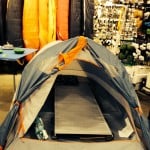
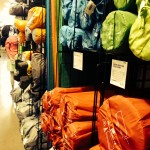
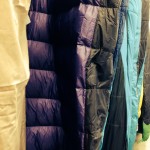
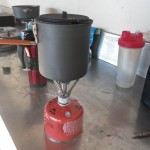
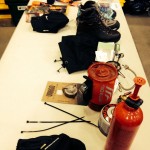

Hi,
I want to try camping in Girbaldi lake in September when we hike the Black tusk.. do you think it’s possible to leabe the tent and bag in the campground whilenwe go up to hike? Or that’s too ridk you think?
Hello, I am also interested if you have any suggestions for 1-3 days hike and camping near Vancouver also available by transit? though I am willing to walk moderate distances from transit before actually hiking.
Hi, can you suggest a 1 night hike near Vancouver accessible by transit?